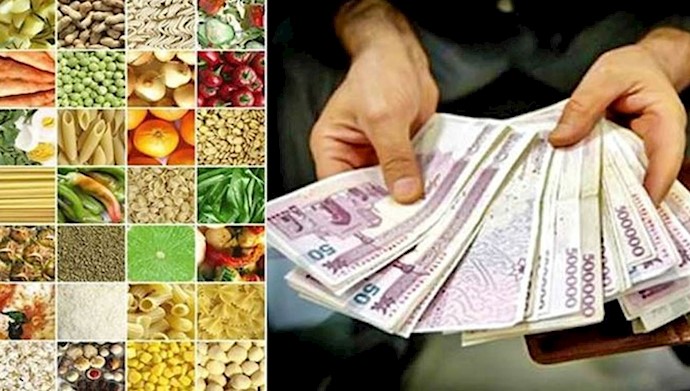Analysis by PMOI/MEK
Iran, Dec. 19, 2018 – At a time when the price of the U.S. dollar has dropped to under 100,000 rial mark and Iranian regime President Hassan Rouhani and his government are boasting about this issue time and again, it is quite ironic to see how the price of all goods are constantly on the rise.
This phenomenon has become a riddle for the people who are barely making ends meet under the pressure of skyrocketing prices and inflation. This issue has become so concerning that even the regime’s state TV has been forced to acknowledge the growing anxieties.
“Merchants are saying don’t even mention discounts… while factory owners say there is no profit in production. This goes even for Iranian brands. Foreign brands? Don’t even mention it,” one person said to a state TV reporter.
Another merchant selling poultry says prices are constantly changing while rising in the overall trend.
According to the Iranian regime’s Central Bank report in November:
During the past year dairy prices have increased by 57 percent, eggs by 56.6 percent, rice by 21.6 percent, peas by 15 percent, fresh fruits by 68.3 percent, fresh vegetables by 39.3 percent, red meat by 39 percent, poultry by 49 percent, tea by 24 percent, vegetable oil by 44 percent, and sugar and sugar cubes by 42 percent.
According to these statistics, the price of food products, in general, have increased by an average of more than 50 percent. All the while, the regime has only promised a 20 percent increase in the paychecks of workers and government employees.
If we add the skyrocketing housing prices in Iran, this picture looks even bleaker.
According to the regime’s experts, the increase in goods prices has nothing to do with the strengthening of the country’s currency rates. The first reason can be found in the utter destruction of production and lowering demands. This includes industrial and agricultural production.
Other factors, such as exporting food products to neighboring countries for higher profits going into the pockets of regime-linked figures and entities, are also taking their toll.
For example, mafia groups receive U.S. dollars at 42,000 rials from the government to import goods from abroad. Then they sell the same goods inside Iran at prices four times as much, pocketing billions in profits.





